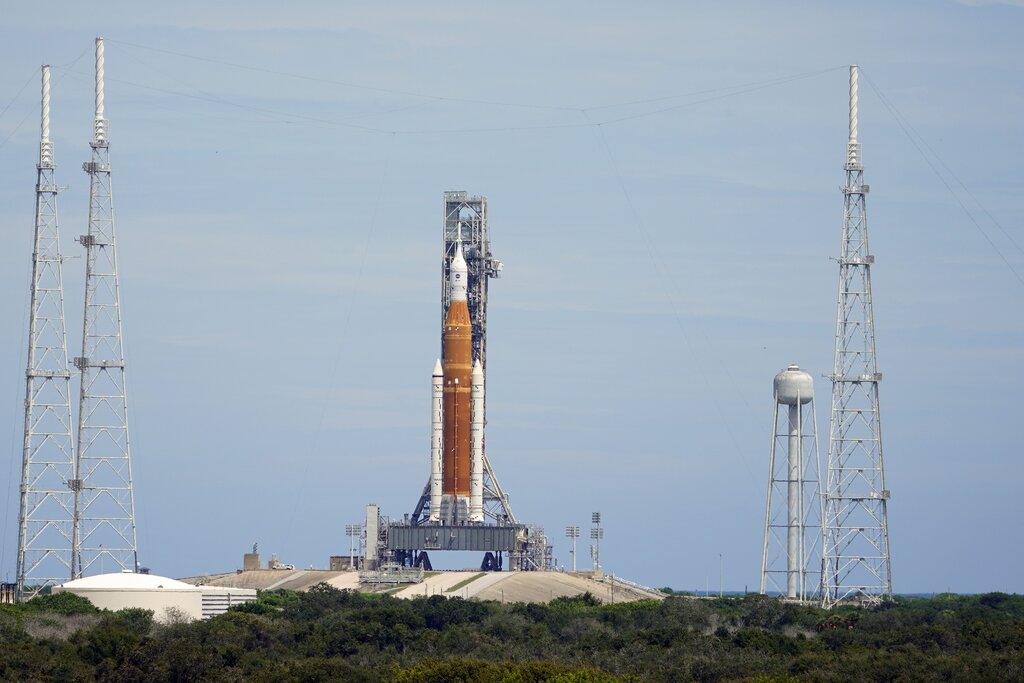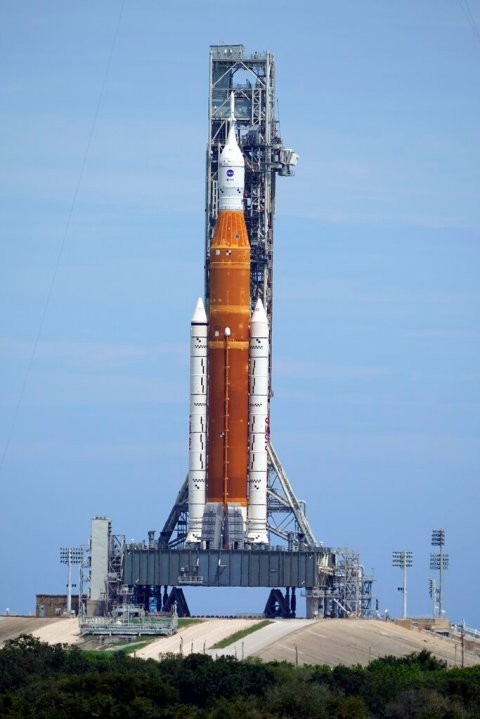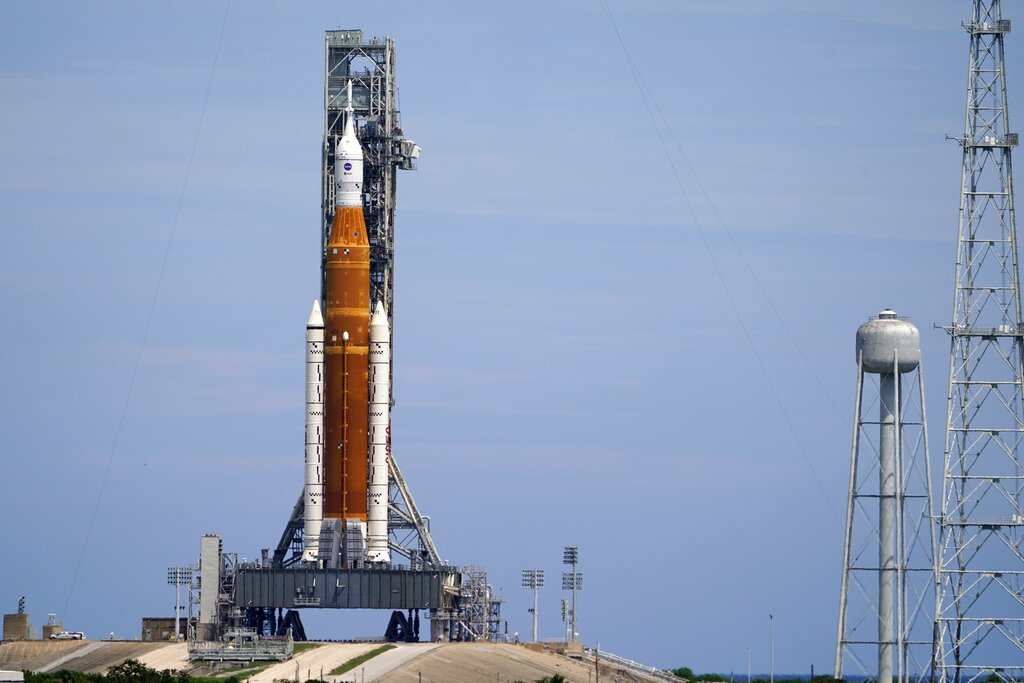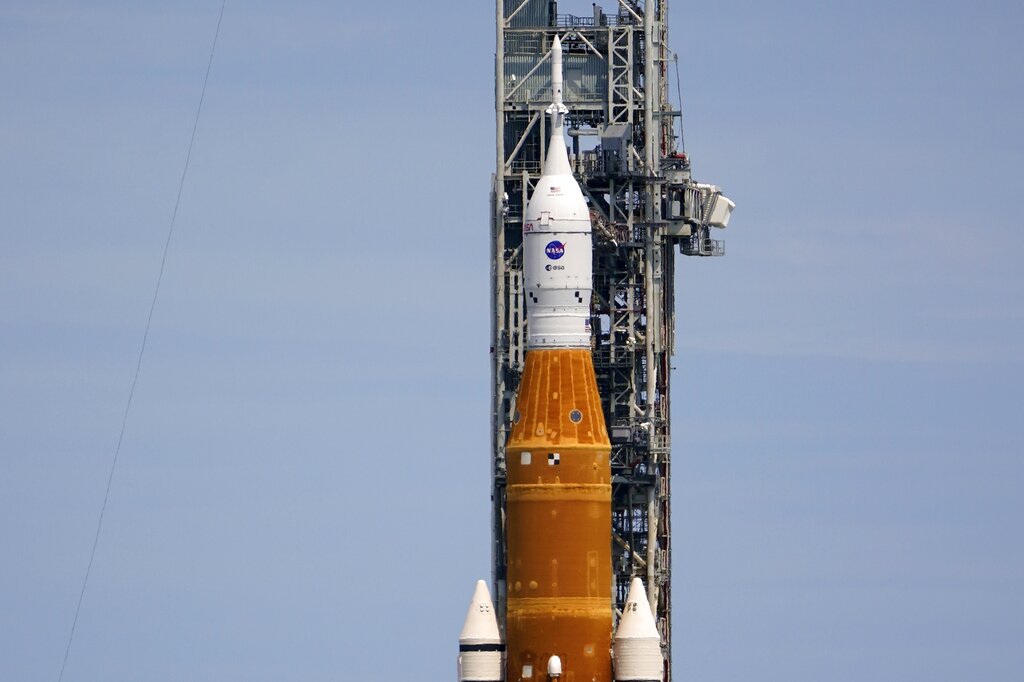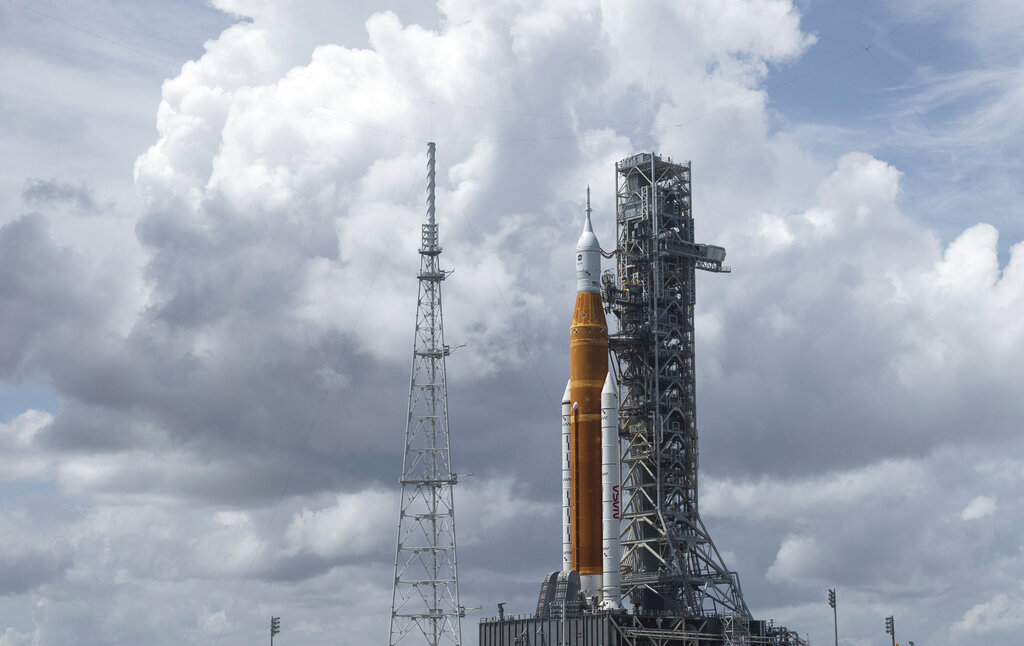(NewsNation) — The launch of NASA’s Artemis I rocket has been postponed for a second time this week, following the discovery of a liquid hydrogen fuel leak Saturday, according to a tweet from NASA.
Teams attempted to fix an issue related to a leak in the hardware transferring fuel into the rocket early Saturday morning, but were unsuccessful, the tweet said.
“Engineers detected a liquid hydrogen leak in a quick disconnect cavity and have stopped flowing the propellant to the core stage while they troubleshoot,” NASA said in a blog post Saturday morning. “Launch controllers are attempting to warm up the quick disconnect to attempt to reseat it to get a tight seal. Liquid oxygen flow is continuing.”
NASA was trying again on Saturday to complete the Artemis launch after it was delayed from its originally scheduled departure from Earth on Monday.
Managers said Tuesday that they were changing fueling procedures to deal with the issue. A bad sensor also could be to blame for Monday’s scrapped launch, they noted.
The 322-foot rocket — the most powerful ever built by NASA — remains on its pad at Kennedy Space Center with an empty crew capsule on top.
The Space Launch System rocket will attempt to send the capsule around the moon and back. No one will be aboard, just three test dummies.
If a future launch is successful, it will mark the first time America has sent a capsule to the moon since Apollo 17 50 years ago.
“We went there and then we stopped and we threw it all away. So I’m excited that we’re getting ready to go to the moon again,” said Dr. Jeffrey Hoffman, a former NASA astronaut.
Jim Free, associate administrator for exploration systems development for NASA, however, said another launch will not be attempted on or before Sept. 6, when this launch period ends.
“I hope you know we’re not where we want to be, except (that) the vehicle’s safe,” Free told reporters after Saturday’s failed launch attempt.
After Tuesday, a two-week launch blackout period kicks in.
NASA Administrator Bill Nelson said repair work could bump the launch into October.
“We’ll go when it’s ready. We don’t go until then and especially now on a test flight, because we’re going to stress this and test it … and make sure it’s right before we put four humans up on the top of it,” Nelson said.
The next launch periods will depend on the options the team comes back with on Monday or early Tuesday morning, Free said.
“We don’t go into these tests lightly,” he said. “The confidence to do another launch attempt today was born out of the fact that we understood the hydrogen leaks we had on Monday, those are different than the leak we had today … and we understood the engine issues.”
Already years behind schedule, the $4.1 billion test flight is the opening shot in NASA’s Artemis moon-exploration program, named after the twin sister of Apollo in Greek mythology. Astronauts could strap in as soon as 2024 for a lap around the moon and actually attempt a lunar landing in 2025.
NASA’s eventual goal with this mission is getting astronauts back on the moon and establishing a permanent presence there.
Hoffman maintains a successful mission could be important for scientific discovery.
“We’ve only just scratched the surface with Apollo, you know, bringing back samples of the moon. And we’ve learned incredible amounts about the history of the solar system, how the earth was formed,” Hoffman said.
And while billions of dollars have been poured into the project, Hoffman said Artemis could unlock access to natural resources and give us a competitive edge globally.
“Someday, the moon is going to be a part of the economic sphere of the earth. Whoever establishes their bases first is in a good position,” Hoffman said.
Much like the space NASA hopes to explore, the possible benefits of the mission may be infinite.


